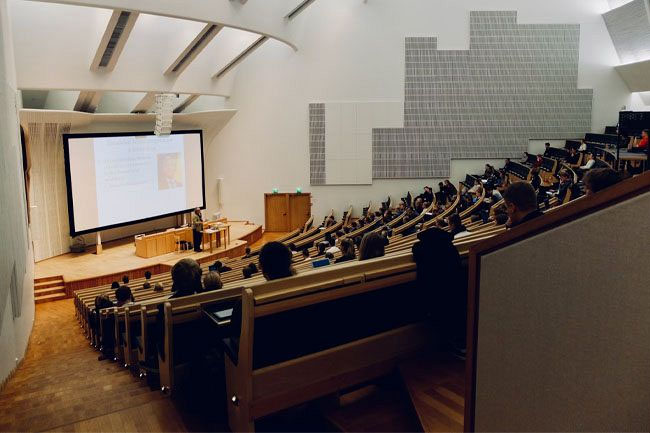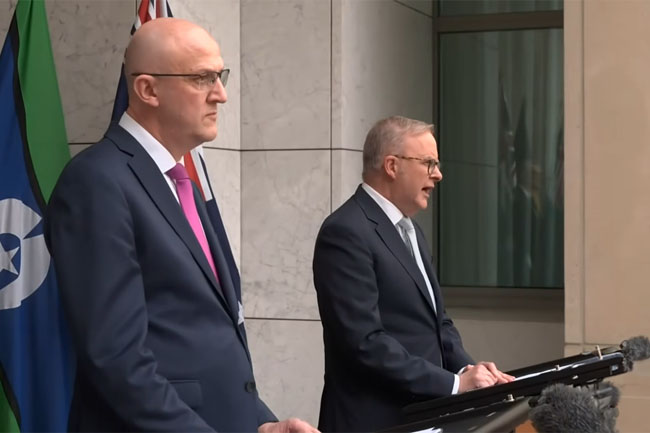That an Australian politician would want privacy when speaking to a foreign donor – or anyone at all – is utterly unexceptional and unsurprising, writes Dr Binoy Kampmark.
The Australian polity is replete with examples of donations by Chinese businessmen and of political figures receiving largesse from those connected with Beijing. Labor Senator Sam Dastyari, who is fast becoming demon and totem in equal measure for the Australia’s Chinese obsession, now finds himself with a considerably lesser parliamentary profile. His leader, Bill Shorten, was unimpressed by his exchange with a Chinese donor, removing the Senator from the position of deputy Senate whip. The teetering Coalition Government is baying for his blood.
The frenzy was stirred by a flashback. It was a tale that the Senator had confessed to and hoped to put to bed, namely his relationship with political donor Huang Xiangmo and remarks made in defence of China’s huffing stance in the South China Sea.
In a statement that had a decent thrust of brownnosing, Dastyari suggested:
“... that we see several thousand years of history, thousands of years of history [to know] where it is and isn’t our place to be involved."
Such remarks, made on June 17 last year, supposedly went further than initially explained and certainly undercut official ALP policy. Given Huang’s links to the Chinese Communist Party, eyebrows were, if not raised, then certainly directed at jaunty angles. Beijing had supposedly found an ally.
Specific attention has also focused on an October 2016 meeting between Dastyari and Huang at the latter’s Mosman mansion in Sydney. It is said to have taken place several weeks after the Senator quit the Labor frontbench over previous dealings with the donor.
The encounter was made somewhat saucier by prior briefings by the Australian Intelligence Security Organisation (ASIO) that Huang was a subject of some interest, given the murky politburo waters he was swimming in. In September 2016, ASIO Director-General Duncan Lewis had warned Labor members
“... that some of their donors had strong links to the Chinese Government.”
Malcolm Turnbull's $500,000 Chinese lunch https://t.co/odvO5bwYZy via @BunburyMail
— Stuart Tomlinson (@virgotweet) November 29, 2017
Neither point is particularly surprising, nor particularly alarming beyond casual interest: Australian politicians will be influenced, bought and directed when required. That the senator would be worried about phones being bugged, or whether the person he is conversing with is a subject of surveillance, should induce a yawn of indifference. This is a business where eyes are peeled and caution abounds, even if can seem ludicrous.
Whether it is economic Beijing or security-minded Washington, Australian politicians find themselves in the power swill, a realpolitik spit roast. Within Australia, influence is also bought by lobbies, interest groups and factions with a story to tell, or an agenda to push. Few can forget the effort made by the coal lobby in undermining the Rudd Government and no one can ignore the grotesque spectacle of an Indian billionaire pressing the flesh of Federal and Queensland politicians in seeking taxpayer funds for infrastructure assistance. Compared to Gautam Adani, Huang is the smallest of fry, the most minute of fish.
The only difference in this stumbling spectacle, and one pushed with minimal credibility by the Attorney-General Senator George Brandis, is the difference such influence assumes. To that end, the behaviour between Dastyari and Huang is being poured over with glee and speculative delight. Business discussions where phones are turned off are not seen socially or logically but politically, dangerous and unwarranted.
Senator Brandis is pushing his limited powers of intuition to the limit: that Dastyari has become a willing puppet, and is in Beijing’s capacious, money chinking pocket:
“This comes at a time when members and senators are under intense scrutiny over whether they hold dual citizenship. Of the 226 Australians elected at the 2016 federal election, the person whose allegiance to Australia is most in question is Sam Dastyari.”
Prime Minister Turnbull is also similarly flapping in the wind, startled by
“... an Australian senator who has gone to a meeting with a foreign national with close links to a foreign government, and advises that foreign national Mr Huang to put their phones inside and avoid the possibility of surveillance.”
How utterly shocking.
Are Labor pollies still being bugged by ASIO like they were under Menzies? https://t.co/nWF5dqcGJE
— Denise C (@SpudBenBean) November 28, 2017
The argument on influence is only useful if you assume that Turnbull, Opposition Leader Shorten – and both front benches – have by and large been feted by US money, ideological scripting and reassurance. U.S. influence, despite its consuming totality, is treated with benign fingers. Across the pond lie “shared values”.
Take, for instance, the response by Clive Hamilton, understandably smarting at the decision by publisher Allen and Unwin to pull his book Silent Invasion from the publishing run. The publisher, in fairly spineless fashion, expressed concern about “potential threats to the book and the company from possible action by Beijing”. The U.S. would never, surmises Hamilton, do the same thing.
What the China obsession reveals is the discomfort and juggle Australian representatives have in navigating the influence of two bucking powers. The net result is simple: Australian policy is up for grabs. Many of its politicians are weak, impressionable and open to purchase. The Liberal argument here is that their receipt of funds from donors goes through a party mechanism, rather than an individual.
In practice, this is poorly constructed nonsense. All parties engage it. Donations come with an implicit suggestion that you are not going to act against the interest of the donor. In its broadest sense, getting at Dastyari over his Chinese links is only meaningful if all links to outside sources of interest with the political classes in Australia are exposed.
Dr Binoy Kampmark was a Commonwealth Scholar at Selwyn College, Cambridge and lectures at RMIT University, Melbourne. You can follow Dr Kampmark on Twitter @bkampmark.

This work is licensed under a Creative Commons Attribution-NonCommercial-NoDerivs 3.0 Australia License
Here is the twitter moment of everyone I could find in Australian politics who has met and posed with the chinese donor at the centre of the SMH story todayhttps://t.co/XM3iCSTvDr
— Tim Beshara (@Tim_Beshara) November 28, 2017
Monthly Donation
Single Donation
@JulieBishopMPs Glaring Hypocracy Over The @samdastyari #China Revelations, #ChineseGovernment Official Linked To @JulieBishopMP Donated $500G To @LiberalsWA #BishopResign @TurnbullMalcolm #SackBishop https://t.co/RrONtPDSd9 @randlight @nobby15 @RBJRON #auspol
— Rick Lane (@ricklevy67) November 29, 2017
Subscribe to IA. It really is Australian.
I don't remember Sam Dastyari meeting with a Chinese billionaire Li Ruipeng & being given what they later claimed they thought were 'fake' $250,000 Rolex watches.
— michael halliday777 (@michaelhallida4) November 29, 2017
That was Abbott, MacFarlane & Stuart Roberts. https://t.co/5wNPxAeekh #auspol pic.twitter.com/5l7Mj9BWLy











